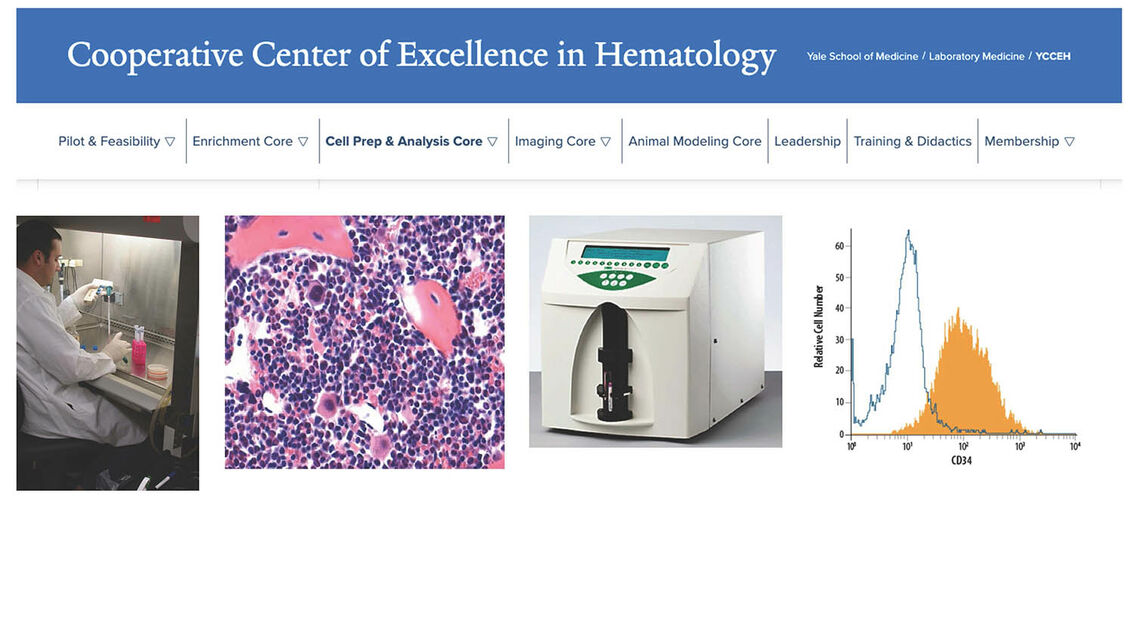
Yale Cooperative Center of Excellence in Hematology
Hematologic Single cell functional, molecular, spatial and morphological characterization of stem cells.
The YCCEH applies innovative, emerging technologies to study normal and perturbed hematopoiesis.
- The Cell Preparation and Analysis Core provides training for and performance of a wide range of hematology-related services and techniques including cutting-edge single cell functional studies with and without cell indexing.
- The Imaging Core brings education and access in all aspects of microscopy. The YCCEH is unique in providing technical expertise in super-resolution microscopy including expansion microscopy and development of improved functional readouts of human progenitor cell fate specification including timelapse microscopy.
- The Animal Modeling Core provides access to the latest technologies for hematologic studies in animal models, including xenogeneic transplantation into highly humanized immunodeficient mice allowing for multilineage engraftment of functional human blood cell types in highly humanized mouse models.
- The Enrichment Core promotes hematology research-related scientific exchange between trainees and investigators. This includes the Rising Stars in Hematology Seminar Series.


